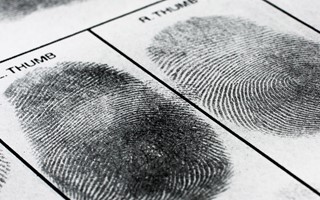News April 12, 2019 1m
The Regulator’s annual report was published in March 2019 and provides a good overview of the forensic marketplace. You can read it in full here: Regulator's Annual Report.
The report is set against the backdrop of significant reviews into forensic science including the House of Lords Science and Technology Select Committee enquiry into forensic science, due to be published in May, and the Association of Police and Crime Commissioners review into forensic science provision.
Whilst the Government committed in 2016 to providing statutory powers to the Regulator, this has not been introduced into parliament and, therefore, the Regulator does not have the statutory powers to enforce her recommendations.
The Regulator recognises the strains from many years of funding restrictions on forensic scientists and calls for profound changes in funding and governance to stop forensic science lurching from one crisis to another.
There has been a drive to ensure full compliance with quality standards across all forensic disciplines and to ensure that the quality culture has matured. Whilst there has been a significant increase in the number of organisations accredited to the Regulator’s Codes (currently 37 legal entities) there is no visibility of the numerous very small organisations with little or no accreditation and, therefore, no external assessment of the existence or adequacy of their systems for assuring quality.
There are issues with the adoption of standards in other disciplines, particularly in digital forensics. Whilst several of the larger commercial providers of digital forensics have broad scopes of accreditation, this is not the case with police forces and, indeed, the rate of increase in compliance has slowed markedly as the police have focused attention on reaching the required standards for fingerprint comparison, which is now a legal requirement. Several submissions to the House of Commons Justice Committee’s inquiry into disclosure of evidence were also critical of quality standards for digital forensics.
Currently, only four police forces, including the three NABIS Hubs, hold accreditation for firearms classification. The Regulator states that all other police forces must outsource their work to accredited providers unless or until they gain accreditation.
Work is underway to develop or implement standards in a number of disciplines including Gait Analysis and Facial Recognition.
Currently, there is no standard for Case Review and the Regulator has highlighted structural issues with implementing such a standard. Much of the work is funded by the LAA and with work being awarded on price, those providers who adopt a quality standard would be placed at a disadvantage. Additionally, the current rates paid by the LAA are too low to enable quality standards to be adopted. A “dry run” has been carried out to establish whether accreditation against the standard ISO 17020 would provide an adequate level of assurance at an appropriate cost. The outcome of the dry run are yet to be considered.
There is also a focus on the Evaluative Interpretation Standard and the use of the likelihood ratio approach to the evaluation of scientific findings is being promoted. It is believed that this supports greater transparency and enables the court to determine the specific nature of any differences between experts.
To find out more about forensic services offered by Forensic Access fill-in our online contact form or Tel: 01235 774870 to speak with our team.


